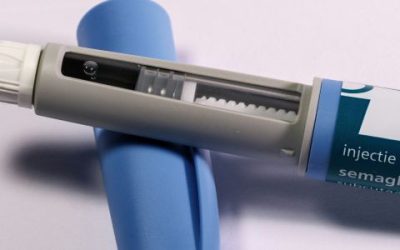Marketing generic drugs is an ongoing issue. The original drugs cost a large amount to create and are cheap to reproduce. Usually, generic drugs go to the market after the expiration of the relevant patent protecting the original drug, but sometimes they go to market before its expiration.
AstraZeneca is a drug developer experienced in litigation in court because of this issue. AstraZeneca initiated court actions in 2023 against the Ministry of Health and Axelpharm, a Russian pharmaceutical company, seeking to cancel the registration of the drug Osimertinib, a reproduction of its own drug, Tagrisso. Both cases were dismissed by the court.
Following this, AstraZeneca sued Axelpharm and Onkotarget, asking the court to forbid sales and apply preliminary injunctions against the sales of Osimertinib. In both cases, the claims were dismissed because, according to the court, the injunctions would block access to life-saving drugs.
AstraZeneca then went to the anti-monopoly body and invoked the Law on Protection of Competition. Article 14.5 states that unfair completion is not allowed where a company unlawfully sells products protected by patents. A letter by the Health Ministry confirmed that Osimertinib is a reproduction of Tagrisso. It was found that two batches of the drug had been dispatched from Onkotarget (producer) to Axelpharm, confirming that AstraZeneca and Axelpharm are competitors in the drug market.
According to the Eurasian Patent Office, patent No. 024421 is included in the Pharmaceutical Register and protects the active compound under the international non-proprietary name Osimertinib. The respondents in this case objected, arguing that the Pharmaceutical Register is of purely informative value. The Commission stated that even if the Pharmaceutical Register is viewed as unofficial, the respondents could not provide substantive objections against that information. Thus, the drug Osimertinib is a reproduced medicine (generic) and uses the substance protected by the Eurasian patent.
In 2021, a dispute between AstraZeneca and Axelpharm involving a cancer drug patent with the same substance resulted in a decision in favor of AstraZeneca. In this case, the fact that Axelpharm sought a license from AstraZeneca confirms that the substance in question is the same, and Axelpharm cannot claim that its drug is different from the patented one.
The Commission found out that production of the disputed drug had been ordered before sending a request for a license, confirming that Axelpharm did not seek permission for the use of the invention, nor did it intend to conclude a deal with AstraZeneca. Further, from July to October 2024, Axelpharm sold large amounts of the drug. The Commission stated that the above circumstances show that Axelpharm blatantly disregarded the decisions of the federal authorities. Read more on this decision here.
Axelpharm retorted that AstraZeneca’s rights in patent No. 024421 should not be protected based on reciprocity because Sweden does not recognize the patent rights of Russians. This is a clear reference to the 14th package of the European Council adopted in June 2024. Section 20 reads that “The Russian Government and Russian courts have been undertaking actions to illegitimately deprive member states intellectual property rights holders of their protection in Russia. In order to neutralize that… intellectual property offices and other institutions should not allow the filing of such applications” (from Russia).
The statement “illegitimately deprive” is far from reality. The Commission explained that the principle of reciprocity falls within the provisions of Private International Law while the anti-monopoly body adopts non-regulatory legal acts in public relations. The Commission is guided by the anti-monopoly law, which does not contain provisions limiting the IP rights of foreign rights owners. There are court cases initiated by AstraZeneca, however, disputes between businesses are the exclusive competence of the courts. The anti-monopoly body suppresses unfair competition. Further, decisions of the anti-monopoly body do not depend on the results of disputes examined in courts.
Osimertinib, marketed by Axelpharm, is protected by AstraZeneca’s patent No. 024421. The drugs of both parties in this dispute are on the market, so this is a clear case of unfair competition. This fact was ascertained beyond doubt. The Commission came to the conclusion that the actions of Axelpharm have all the attributes of unfair competition and issued an administrative order to stop actions violating the anti-monopoly law. Axelpharm’s sales of the drug earned 566,951,059.34 RUB (approx. 6 million USD). If a person commits actions recognized as unfair competition, that person should pay to the state budget all profit obtained from unfair competition.
The administrative body cannot award damages to the complainant, so AstraZeneca will not be awarded monetary compensation. However, this decision has removed an unfair competitor from the market, and AstraZeneca, in turn, will be able to sell more of its own drugs. The unfair competitor will suffer severe financial losses, which will be a powerful deterrent for it and potential future competitors.
Incidentally, another case involving Axelpharm was initiated by Pfizer. Axelpharm was ordered to pay 513,673,654.46 RUB (approx. 5 million USD) to the state budget. These large amounts of money exert a mighty sobering effect on the unfair competitor.
Will this be a new trend? Future cases will show.

Written by Vladimir Biriulin
Partner, Gorodissky & Partners
You may also like…
Enhanced by AI, comprehensive IP management systems are the superior choice
Currently, many organizations are attempting to address their diverse intellectual property (IP) needs by implementing...
The semaglutide saga continues: navigating generic entry and reinforcing patent strategies in Canada
In our July 2025 analysis, “The Semaglutide Story: Highlighting the Need to Maintain Patent Protection in Canada,” we...
Smart AI automation in IP management
Just like websites, smartphones, and open-source software dramatically changed our modern era, artificial intelligence...














